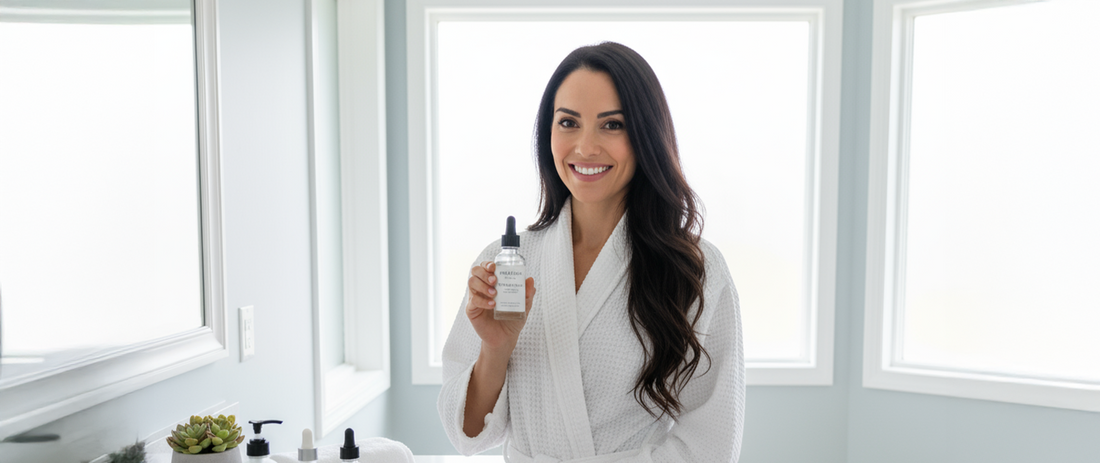We all know that our body needs at least 8-10 glasses of water to function adequately. And just like that, our skin also needs proper hydration by using moisturizers and creams to maintain its nourishment and health. Whether you have oily, dry, or sensitive skin, moisturizing and hydrating your skin with the best skin whitening cream is essential.
Continue reading to know more about hydrating and moisturizing your skin.
What is a Moisturizer and What Does it Do?
Moisturizers are an essential skincare product in every routine. By forming a barrier, moisturizers protect your skin from damaging environmental elements like dryness and pollution. Moisturizers like skin whitening creams maintain your skin's outermost layer, which keeps it robust, smooth, and prepared to deal with the day.
Different Types of Moisturizers
Skin whitening creams: Perfect for dry and older skin types, these creamy moisturizers provide deep nourishment. Because of their consistency, they are more suited for usage in arid conditions or in the winter, when the skin needs more moisture. We recommend using the best skin whitening cream at Skin Lab to ensure your skin remains healthy and moisturized. These whitening creams hydrate the skin and brighten the complexion.
Lotions: Ideal for normal to combination skin types, lotions are lighter than creams. They are ideal for daily usage and provide a balanced level of hydration.
Water-based moisturizers and gel-based moisturizers: These moisturizers penetrate into the skin rapidly and are lightweight, translucent, or transparent. They offer deep hydration without irritating skin, clogging pores, or leaving a greasy residue, and they are often non-greasy.
Benefits of Using a Moisturizer
Here’s why using moisturizer is essential.
Hydrates the Skin
In order to preserve the skin's natural moisture balance, moisturizers provide the skin with vital water. Because water preserves the elasticity and smoothness of the skin, hydrated skin is softer and plumper. Hyaluronic acid and other ingredients in skin whitening creams draw in and hold onto moisture, keeping skin cells moisturized. By avoiding dryness, flakiness, and tightness, this promotes a more radiant and healthier complexion.
Protects the Barrier
Ceramides and fatty acids found in moisturizers like skin whitening creams help to fortify the skin's natural barrier, which protects the skin from pollution, UV rays, and harsh weather. This barrier also keeps moisture from escaping, keeping the skin hydrated and protected. As a result, you can get smoother, softer, and plumper skin.
Better Skin Texture
By minimizing the visibility of pores and smoothing out rough areas, moisturizers enhance the texture of the skin. Because moisturizers plump up the skin and give it a more polished appearance, hydrated skin is less likely to feel rough or uneven. Ingredients like salicylic acid in moisturizers can exfoliate dead skin cells, leaving the skin's surface looking smoother and softer.
When Should You Use a Moisturizer?
Following cleansing: After washing, exfoliating, or taking a shower, it is ideal to use a moisturizer. It's important to use a sufficient amount of moisturizer to restore the moisture lost by washing your face and skin.
After completing your skincare regimen: Use a moisturizer to seal in moisture after cleaning and toning, and hydrating. Remember, you should always wear sunscreen after applying moisturizer.
At night: Your skin regenerates and heals at night. This natural process can be supported by using a rich, nourishing moisturizer before bed, which will guarantee that your skin is hydrated, soft, and supple when you wake up.
What to Do After Applying Moisturizer?
There are a few essential steps to follow in order to ensure that your skincare routine is successful and that your skin receives the most benefits from the product after applying moisturizer.
Give Room for Absorption
Before using any more products, let your skin absorb the moisturizer. This usually takes a few minutes. Avoid touching your face at this time to prevent the transfer of bacteria and pollutants from your hands to it.
Wear Sunscreen
Apply a broad-spectrum sunscreen with at least SPF 30 over your moisturizer if it's daytime. This guards against damaging UV radiation and stops skin cancer and premature aging.
Don’t Overlayer
Applying too many products on top of the moisturizer should be avoided. Over-layering can result in pilling, where product layers come off in tiny flakes, or plugged pores.
Thus, always hydrate your skin with the best skin whitening creams to maintain a healthy skin complexion. This will protect your skin barrier and nourish your skin, improving your skin's overall appearance significantly!
